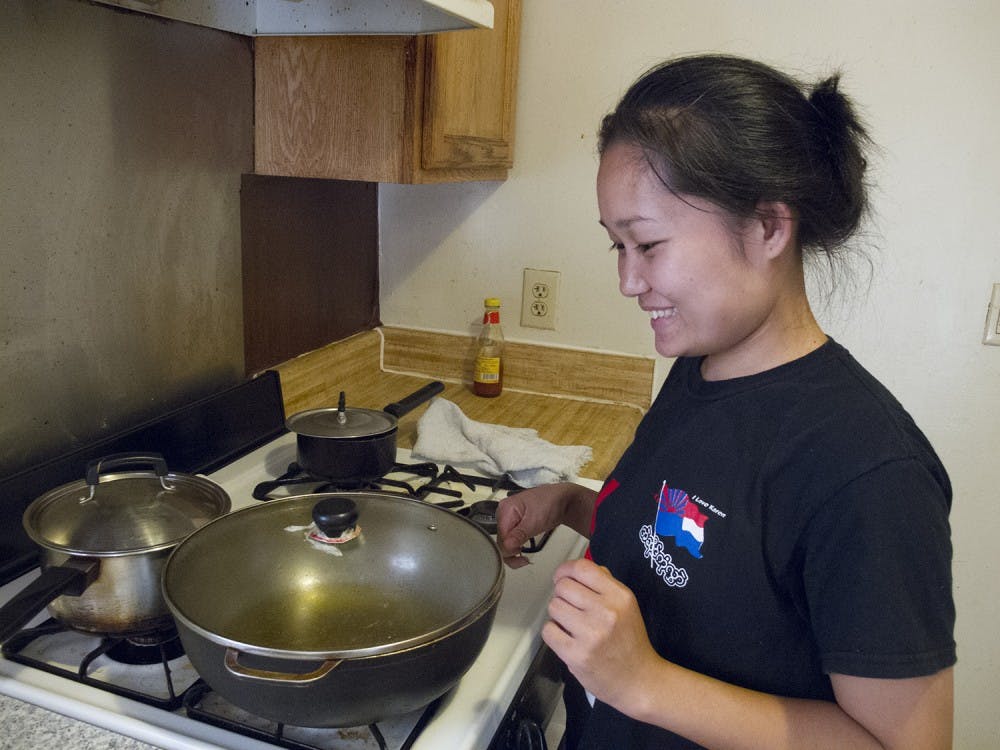Transplanting Traditions Community Farm, a farm where refugee families grow and sell food, will host a fundraising dinner at Lantern on Sept. 30. Khai Nyuitow, a Karen refugee from Burma, is the head chef for the event. She is 26 and has lived in Chapel Hill since 2005 with her two children. The Daily Tar Heel’s Stephanie Lamm sat down with Nyuitow as she prepared for the event.
The Daily Tar Heel: How did you discover that you liked cooking?
Khai Nyuitow: I start cooking when I was 7 years old because I have to take care of my three brothers. It’s really hard for us to get money because we don’t have any job in the refugee camp. My parents, they have to go out of the camp and work ... I have to cook and find food for them every meal.
In our cultures, for Karen people, women always have to stay home and take care of the family. They have to know how to cook.
DTH: What was it like finding housing and a job with limited English?
KN: We got a bunch of the letters and I don’t know what they mean and where did they come from. I always had to ask for help from friends or neighbors to read and sometimes to fill out the application form too.
Even when I had just five minutes or ten minutes, I’d try to read and write English and try to teach myself English. I thought, “Oh Khai, you should realize you cannot ask for help every day...You have to stand up by yourself and do it.”
DTH: Was it hard for you asking for help?
KN: Yes, sometimes it felt bad to ask and keep asking for help from people. It feels so bad but you don’t have the ability to do it on your own. Also, the letter is important or not important, I don’t even know. I always have to ask. I feel so bad. The people who would help you, it’s difficult for them, too, because they have their family and they cannot give their time all the time to help you. It’s hard.




